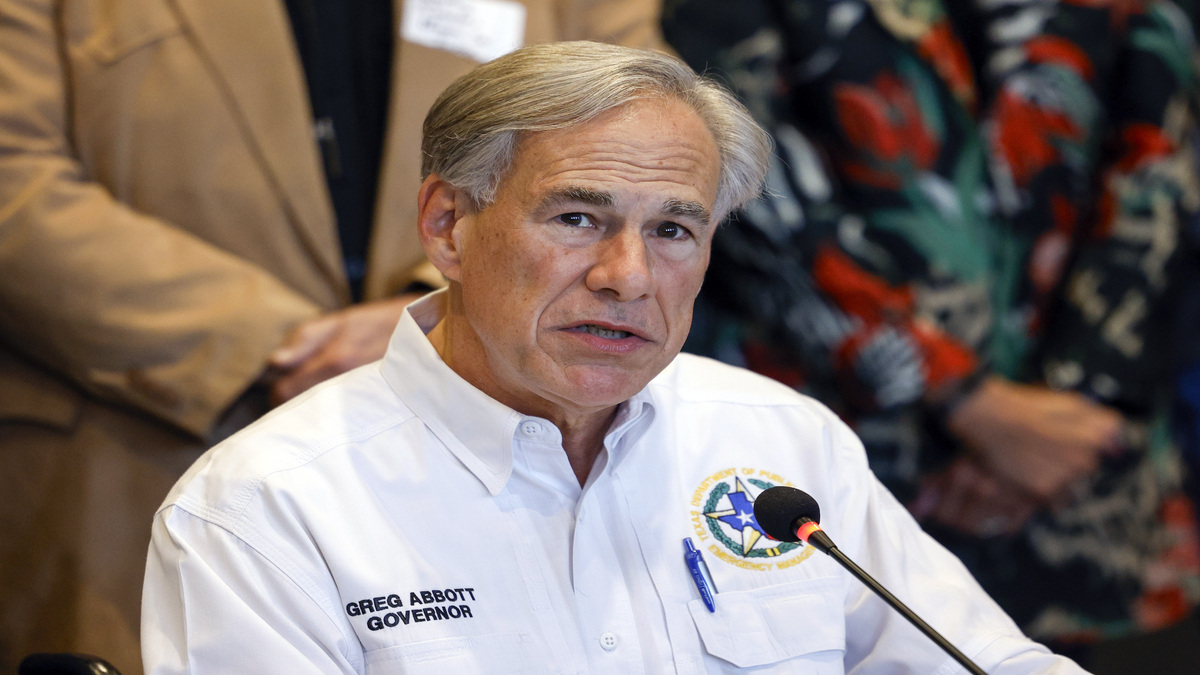Texas Governor Greg Abbott said that he will continue to bus migrants out of the Lone Star State until the United States of America gets a “new president”. The comment from the Texas Governor came amid the brewing tensions between the White House and his government over the migrant crisis.
In a speech at the New York Republican Party’s annual gala which took place in Manhattan, the 66-year-old Republican politician claimed that the busing program was “initially not part of the plan” until things went out of the hands, The New York Post reported.
The governor mentioned that he decided to start busing migrants out of Texas after local officials expressed concern with the number of migrants that were being apprehended at the border.
Abbott explained that the plan at first was to only bus migrants to Washington DC. “Neither Joe Biden nor the border czar [Vice President Kamala Harris] had actually been to the border to see the chaos and cost," he exclaimed.
“And so my thought process was, if they’re not going to come to the border, we’re going to take the border to them,” he added.
Mayor Adam was the ‘root cause’
The Texas governor went on to claim that he expanded the busing program to New York City only after receiving major flack from the city’s Mayor Eric Adams.
Impact Shorts
More Shorts“Quite literally out of nowhere Eric Adams starts criticizing me for sending them to New York City,” Abbott recalled.
“We made clear, by contacting his office, and said, ‘We’re not sending them to New York.’ We issued press releases to the press saying we’re not sending migrants to New York — that’s Joe Biden sending them to New York," he added.
Abbott bashes Biden
In his keynote address, the GOP leader slammed President Joe Biden’s “poor border policy”. He argued that the 81-year-old American Commander in Chief’s decision to eliminate measures that aimed to curb illegal immigrants led to “chaos” and created an “extraordinarily dangerous” situation.
He went on to refer to Texas as “ground zero” and blamed it on “broken promises” imposed by US President Joe Biden.
“You know, the chaos that we’ve seen across the entire country — it seems like it’s been going on for so long that we can so easily forget that it was just four years ago that we had the lowest illegal border crossings in 45 years,” he added, lauding former President Donald Trump for implementing policies like “Remain in Mexico” and Title 42, the expulsion in which the US government can remove a person who had recently been in a country where a communicable disease was present.
Why are Abbott and Biden sparring over border dispute
It is pertinent to note that in the span of a few months, the Texas border issue has evolved from a political crisis to a constitutional crisis.
In January this year, Abbott cited constitutional provisions that he says allow him to secure the US border with Mexico by “any means”. However, according to the US Constitution, the federal government is recognised as the final authority over the nation’s border.
While putting forward his argument, Abbott claimed that “the federal government has broken the compact between the United States and the States,” and went on to cite Article IV of the constitution.
The aforementioned Article stated that the states and the federal governments are obligated to “protect each of them against invasion”. However, Abbott accused Biden of violating the law.
He then went on to reason that the failure of the Biden administration to protect the border eventually triggered Article I of the Constitution.
While the Article prohibits states in most cases from entering independent compacts with foreign governments or waging wars, it adds that the prohibitions apply to the states “unless actually invaded, or in such imminent danger as will not admit of delay.”
Abbott pushed for a law that enabled state authorities to arrest and prosecute people suspected of illegally crossing the US-Mexico border.
However, amid the growing political tussle between Biden and Netanyahu, the US appeals court last month kept a hold on the controversial legislation.
With inputs from agencies.


)

)
)
)
)
)
)
)
)



